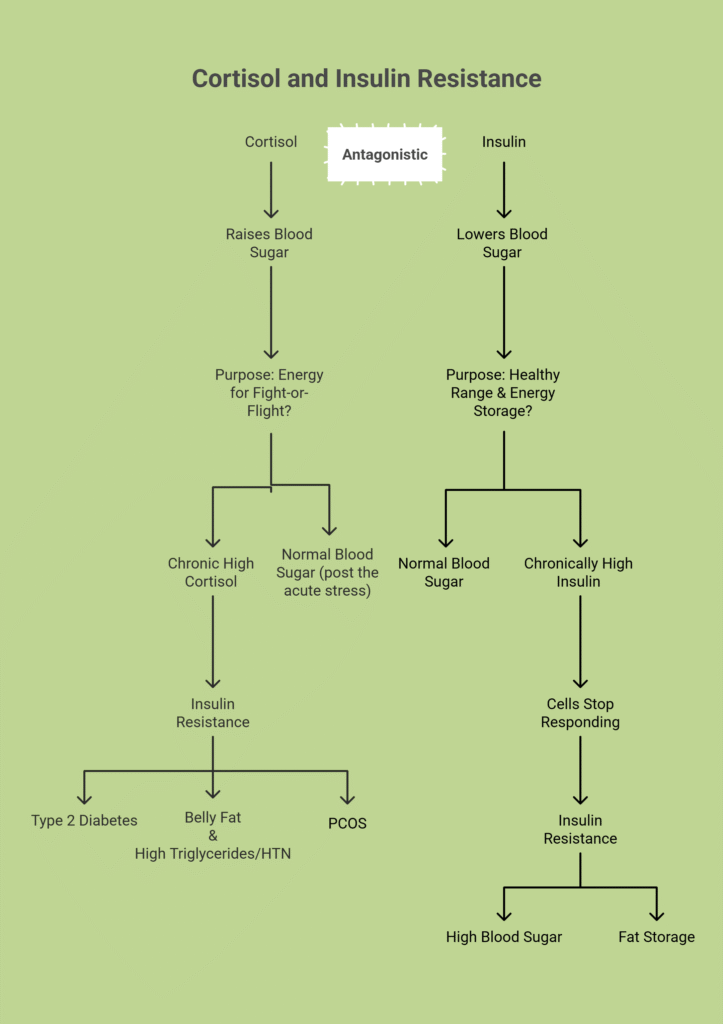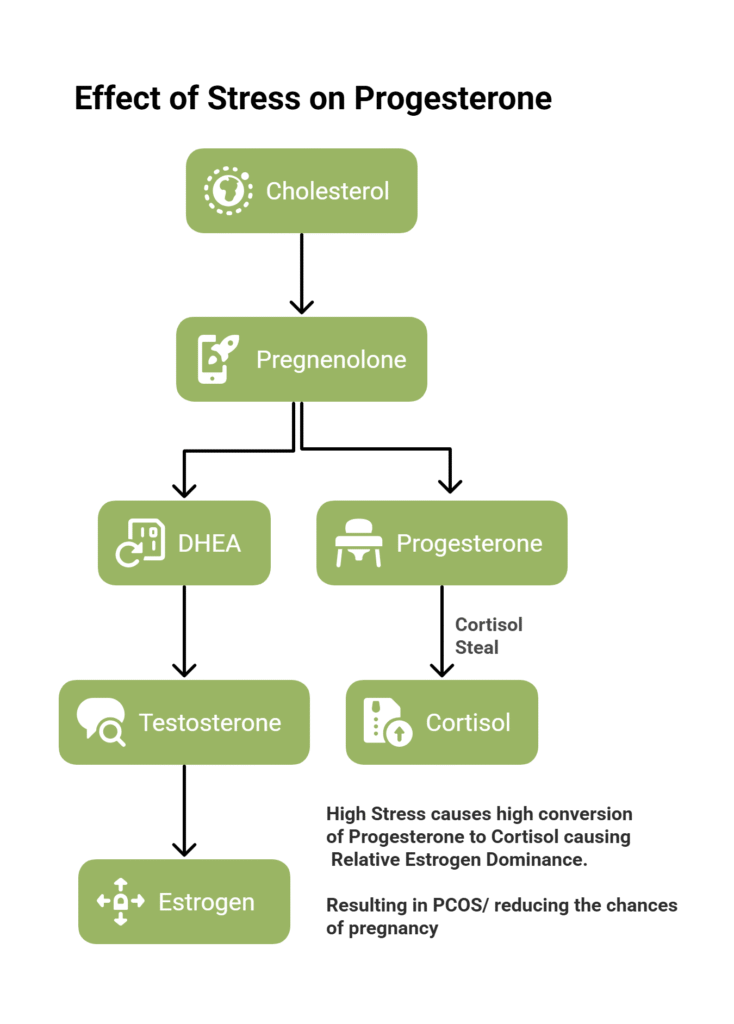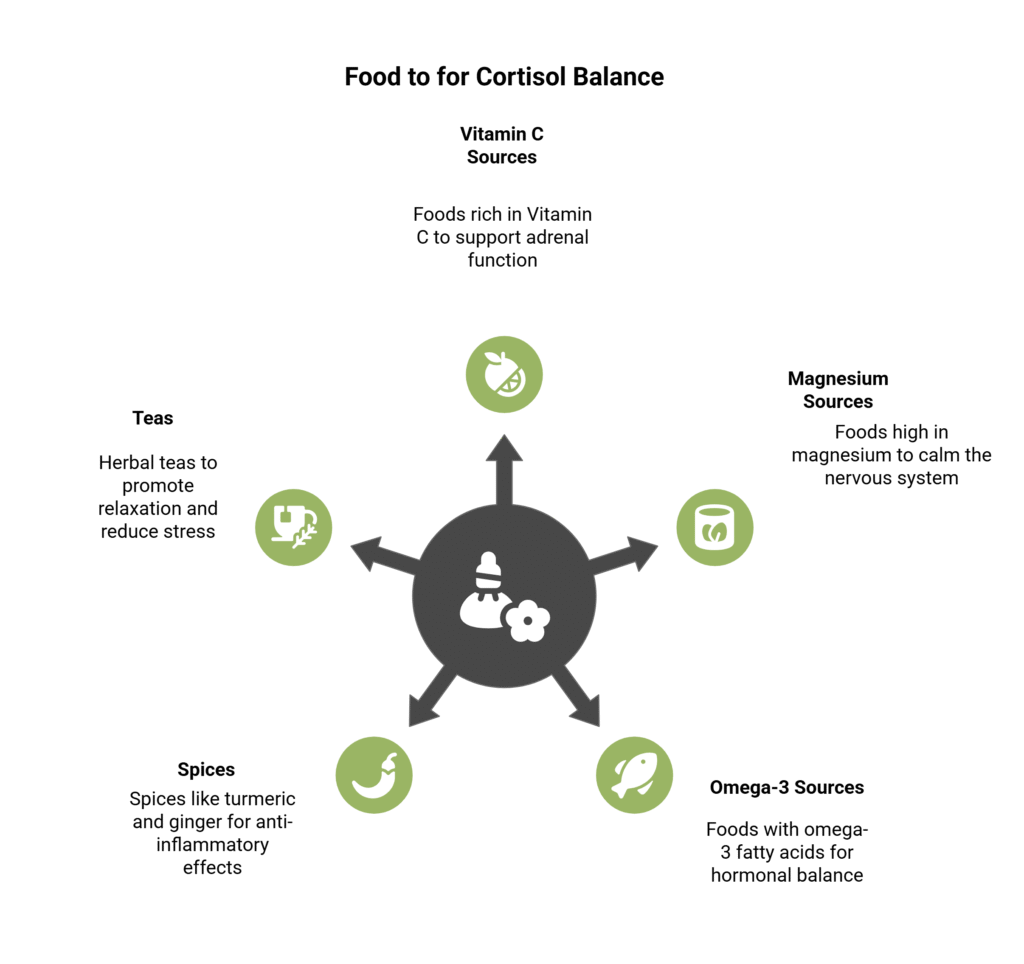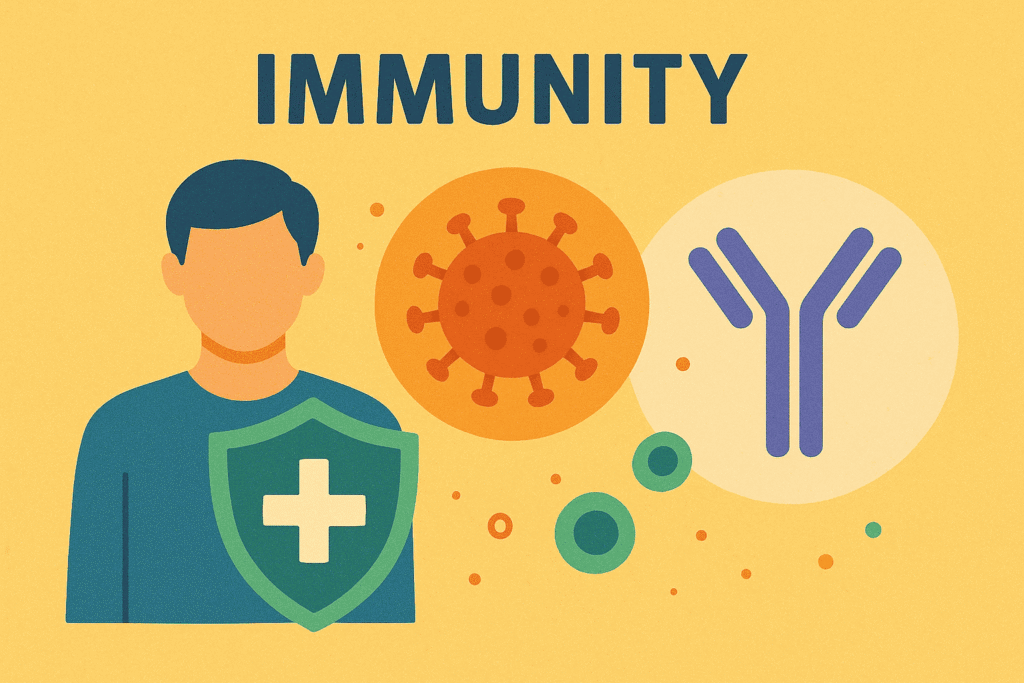Cortisol
Culprit to Infertility, PCOS Weight Gain and More…

Cortisol also called a stress hormone has caught a lot of attention in the past few years. Also because, this hormone alone has the power to dysregulate multiple pathways and hormones in the body when chronically high.. To name a few it plays a role in:
- Regulating blood sugar and metabolism
- Controlling inflammation
- Fat and Cholesterol metabolism
- Hormone Regulation
- Immune Regulation
- Sleep and Recovery
- Anxiety, Focus and Concentration
Antagonistic Relationship of Cortisol and Insulin
Insulin = puts glucose into storage (banker).
Cortisol = pulls glucose out into blood (emergency rescuer).
When both are high (e.g., stress eating), the body gets conflicting signals:
Cortisol pushes glucose up.
Insulin tries to push it down.
This tug-of-war → unstable blood sugar, cravings, weight gain, diabetes risk.
Effect of Cortisol on Insulin Resistance:

Effect of Cortisol on Hormones
When stress is constant, the body prioritizes cortisol production over sex hormones like progesterone, estrogen, and testosterone, leading to hormonal imbalances. Infact, how cortisol affects infertility in PCOS Indian women, this is one of the major reasons why women struggle to get pregnant. Women undergoing IVF too have to first work on correcting this defect to prevent chances of miscarriage.
Pathway
- Pregnenolone → Cortisol ↑ Cortisol
- Progesterone
- Testosterone
- Estrogen
Result of Chronic Stress
- PMS, infertility, perimenopause symptoms
- Low libido, muscle loss, mood changes
- Irregular cycles, hot flashes, bone loss

How do you know if you have High Cortisol Levels?
While there are serum cortisol tests that are available, the test is very inaccurate due to the volatility of the hormone. One can however, look for the symptoms, one of the prominent ones being Cortisol-driven weight gain belly fat PCOS. Few others are:
- Weight gain (especially around your abdomen)
- Feeling low on energy especially in the mornings
- Purple Stretch marks around abdomen, thighs, arms and breasts
- Thinning hair
- Spotting between periods
- Puffy Face
- Sugar and Caffeine Craving
- Anxiety/ Trouble Falling asleep
Balancing Cortisol Naturally
Stress Management Becomes one of the major tools to correct when you are trying to streamline everything in the body to function naturally. Here are few natural methods you can adapt inorder to manage chronic stress
Food: Including the following not only help in better stress management but also provide with necessary antioxidants and nutrients to replenish the body with the over utilization of the nutrients

Supplementation: B12, B6, Zinc, Vitamin D, Magnesium. These are some of the nutrients that the body needs more than the usual RDA to enhance and combat from high cortisol levels. Make sure that you dont just pick up any supplementation that has the above composition. The dosage and the type of composition makes a huge difference. An experienced functional dietitian can help.
Balanced cortisol means better energy, stable mood, healthier metabolism, and resilient hormones.
These tools are management but we definitely cant take away the fact, that the genetc make up of Indian women plus the lifestyle and food routine reduces the fertility window due to menopause in the early or late 40s vs the Western Counterparts.
Indian women who struggle with Weight gain inspite of being on calorie deficit need an elaborate hand holding to work on inflammation, estrogen dominance at times due to complicated hormone profile. I conduct 1-1 sessions and have catered to more than 1600 individuals. If you would like to get a personal assessment, reach out by Clicking Here for a 40 minute discovery call.

Naina Singhania
Registered Dietitian | Functional Nutritionist |
Diabetes Reversal Expert | Gut and Hormone Health Management
About Naina: Naina is a Registered Dietitian of India practicing since 2013. She works in the field of Weight Management, Diabetes Reversals and Women’s Health (PCOS, Infertility). She lives in Mumbai and caters to clients worldwide. Her approach is a combination of Ayurvedic Analysis along with scientific base in Functional Nutrition allows her to get into the root cause of the problem and provide customised solutions to her clients.






